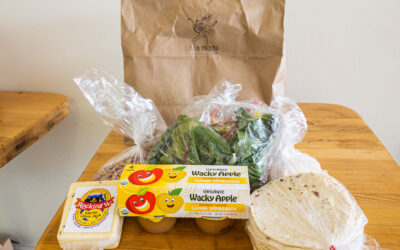
Photo by Richard Lord: Joel Salatin raises pastured poultry and grass-fed beef at Polyface Farms in Swoope, Va.
Victimhood escalates to stratospheric whining with Amanda Marcotte’s recent Slate post titled Let’s Stop Idealizing the Home-Cooked Family Dinner.
The piece concluded more often than not family members (especially the male ones) were ingrates and, generally, home-cooked meals were too stressful, expensive, time-consuming, and utensil-dependent to be worthy of the trouble.
Marcotte’s indictment of what she considers a romanticized cultural icon certainly speaks volumes about where our cultural mainstream food values reside. Indeed, the average American is probably far more interested and knowledgeable about the latest belly-button piercing in Hollywood celebrity culture than what will become flesh of their flesh and bone of their bone at 6 p.m.
In the circles I run in and market to, the home-cooked meal is revered as the ultimate expression of food integrity. The home-cooked meal indicates a reverence for our bodies’ fuel, a respect for biology, and a committed remedial spirit toward all the shenanigans in our industrial, pathogen-laden, nutrient-deficient food-and-farming system.
I would imagine most of the ungrateful males in these families watch TV or see a lot of food ads on their computers. You won’t find integrity food advertised on TV or pop-culture web sites. It’ll be a steady brainwash of junk food, convenience, highly processed food-like materials. That we can physically chew and swallow the stuff does not make it desirable for our bodies.
Further, since when are women the only ones who are supposed to shoulder the burden for integrity food? Why doesn’t Marcotte, rather than whining about unappreciated women, write instead about families who seem to think sports leagues and biggest-screen TVs are more important than health? Who think pharmaceutical companies are responsible for wellness? Who think no difference exists between factory chickens and pastured chickens?
Here’s the question I would like to ask these families: “Are you spending time or money on anything unnecessary?” Cigarettes, alcohol, coffee, soft drinks, lottery tickets, People Magazine, TV, cell phone, soccer games, potato chips . . . ? Show me the household devoid of any of these luxuries, then let’s talk. Otherwise, you’re just unwilling to do what’s more important, which is provide for the health of your family and your environment. That’s a personal choice, and one that’s entirely within your control.
I’m amazed at the difficult situations I hear about in which people do indeed rise to the occasion. Whether it’s sprouting mung beans or alfalfa seeds in a quart jar on the windowsill or buying grain by the bushel, resourceful, can-do people committed to changing their situation figure out a way to do it.
For Marcotte to accept irresponsibility this easily underscores a profound courage deficiency. Turn off the TV, get out of the car, get off the phone and get in the kitchen — men, women and children. The most expensive potatoes in the nation are cheaper by the pound than the cheapest potato chips. Ditto healthful ground beef from pastured cattle versus fast-food burgers.
With slow cookers, indoor plumbing, timed-bake and refrigerators, today’s techno-enabled kitchens allow busy people to cook from scratch and eat with integrity far easier than during Great Grandma’s time. She had to fetch water from the spring, split stove wood, start a fire and churn the butter and she still managed to feed a large family very well. If our generation can’t do at least as well with our 40-hour work week and kitchen tech, then we deserve to eat adulterated pseudo food that sends us to an early grave. I don’t know that anyone’s children deserve this, however.
While extreme hardship does certainly exist — and my heart breaks for impoverished people who truly have no resources — let’s not excuse the other 98 percent from their responsibility on that account. If everyone who could do something would do it, perhaps we would all have enough left over to help the egregious hardship cases. Soccer moms driving their kiddos half a day one way to a tournament, stopping at the drive-by for “chicken” nuggets, and then dismissing the kitchen as “too stressful” is an upside-down value system. And how many of the men whining about not liking what they’re being fed spend their Saturdays on the riding mower managing a monoculture, fertilized ecological-dead-zone of a suburban lawn, rather than using their resources to grow something nutritious for their families and wholesome for the planet? When do we start talking about them? Hmmmmm?





